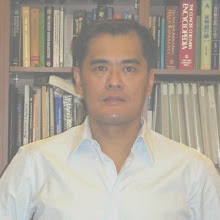文藻外語學院九十八學年度第一學期課程綱要
Wenzao Ursuline College of Languages
Syllabus for the Fall Semester in 2009
壹、課程基本資料
課程名稱Course Title : 經濟學 (一) Principles of Microeconomics
開課學制School System :
日間部 Day School 4-Year College
開課單位Department:
國際企業管理系Department of International Business Administration
授課教師Instructor:衛忠欣 (Jong-Shin Wei)
職稱Position Title:專任副教授Associate Professor
師生互動Instructor’s Contact Information:
1. 辦公室Office :Z0513
2. 辦公室電話Office Phone Number:07-3426031 ext.6222
Also 0912-604-341
3. 電子信箱E-mail:jsw12011958@gmail.com
john@mail.wtuc.edu.tw
4. 約談時間Office Hours:12:10 pm ~ 2:50 pm, Tuesdays
3:10 pm ~ 4:50 pm, Thursdays
學分Credits:3 (學分)
選課別Category:【★】必修Required Course
開課類別 Course Categories:【★】學期課 For Academic Semester
開課年級 Year Taught:1 (freshman)
授課班級 Class Taught:UB1
科目概要Course Description:
不需任何商管背景知識,盼能介紹經濟學之美、具科學分析之嚴謹與預測能力。若能認真聽講、閱讀、互勉、良性競爭與自律,將領悟採用文字淺顯、評價極佳的英文版教科書之用意。內容有:市場、價值決定、均衡、管制、供給者決策、成本與利潤、價格接受、價格制定、寡占、不確定性與訊息經濟概論。本課程係經濟學原理的個經部份。
No prior knowledge of economics or business is assumed. Notions such as market, price determination, equilibrium, regulation, producer’s decision-making, cost and profit, price-taking, price-making, competition among a few, uncertainty and information will be introduced at the entry level with a textbook written in English. Neither calculus nor indifference map will be used.
課程目標Course Objectives:
1.讓學生聚焦於獨立思考與批判能力之培養。
2.使學生開拓經濟分析的視野。
3.讓學生養成閱讀英文版商管類教材之習慣。
4.使學生具備往後的經貿財金課程(如個體經濟學、總體經濟學、應用賽局、
國際經貿、財務金融領域之相關課程)之基礎。
Introduce a small subset of materials often covered by teachers in our counterparts. The natural tradeoff is emphasizing deep and critical thinking as well as creating an open-minded yet stimulating atmosphere at which English serves as a tool, not the target per se. Prepare students for upper-level core courses (e.g.,microeconomics, international economics, and applied game theory), not necessarily confined to the preparation of graduate studies.
評量方式與評分比例分配Evaluation Criteria:
Active participation (i.e., answering and questioning): 15% (與學務系統之點名無關)
Quizzes: 15% (best two quizzes will be counted)
In-class midterm exam: 30% (解答皆上網;見網路學園)
In-class final comprehensive exam: 40% (解答皆上網;見網路學園)
Both exams are open books/notes.
點名是本校引以自豪(且沒有辯論空間)的政策。既然有點名,要求依本人自創之附相片座位表入座,並不為過。小考(quiz)以無預告為原則。以報告代替筆試,並不適合低年級課程。若考前畫重點,更是自欺欺人、治學之恥。教師對評定『Active participation』的最起碼保證,為subjectively objective。\
課堂要求Course Requirements & Policies:
As we are excited (and expected) to utilize modern technology, lectures will be given via PowerPoint. Those who blame PPT for feeling sleepy should seriously consider transferring to colleges that still heavily use chalk talk. No chatting; no use of cellular phone in any way. Do not circulate materials (even if they are from our college) among students when the class is in session. [Do negotiate with me beforehand as talking for 50 minutes with no stop isn’t good to my health. I can lend you a few minutes for legitimate purposes.] Spontaneous interaction (such as questioning and answering) is expected and rewarded. All questions should be brought to the instructor.
啟動冷氣之權責,在於教師。目前係使用者付費。門窗宜關閉以防止麥克風相互干擾與窗簾布飄揚(影響螢幕光度)。負責管理冷氣卡的同學務必準時進教室、啟動冷氣,違者應受平時成績扣分之處分(理由:負面影響教與學之環境)。第一週將徵求課堂義工兩位,以平時成績為誘因。校園治安良好,授課中途,如需緊急如廁,一律由前門出入,義工確實造冊登記,也助於教師搜集研究資料。在第一屆學生離校後,授課中途尿遁之怪象,理應走入歷史。(已提示泌尿科、婦產科醫生診斷證明者,將不會被登記。)據本人數年觀察,本校正、副校長與多位主管(甚至本人),年齡是同學的兩倍有餘,長期在冷氣房開會,未見有在70分鐘內如廁之需要。電影院的觀眾樣本,就更不用說了。
考試時可使用字典或翻譯機,記取瓜田李下的古訓,不得傳遞借用。為提供同學考前認真閱讀課本之誘因,翻譯機與字典,限考試開始30分鐘內使用。嚴禁考試時參考中譯本。試題以英文為主,授課時會適時加入中譯。影印課本觸法;用中譯本會後悔 -- 堅持用中文課本就不必來文藻;在大學續用高職課本或補習班講義是傻瓜。所有教材(含解答與考古題)完全公開(請善用網路學園)、既非照本宣科、獎勵聽眾預習。同學若全程錄音,既利於充實教學資源、防範斷章取義之卑劣作為,必有漂亮的平時成績。伏案小睡者,得視同缺席。如有業界專家前來協同教學,將適時微調若干授課進度。協同教學之內容,也會納入考試範圍。
學生是繳費來接受正規教育的。前車之鑑,如有任何其他課程或人員,未事前報備,企圖佔用本課程時間,正副班代表有責任,立即出示此授課大綱,堅守原則。
預防傳染疾病之相關事宜,概依校方規定。
本課程如有 teaching assistant (TA),另行公告。
教科書Textbooks:Frank, R. H. and B.S. Bernanke (2009), Principles of Economics,
brief edition. McGraw-Hill.
指定參考書目或網址References:
近兩年授課投影片與試題詳解,置於e-learning(http://elearning.wtuc.edu.tw)。過去在國際企業系授課採用的教科書,係
Mankiw, N.G. (2007), Principles of Economics, third ed. Thomson.
應該是最淺顯易懂的課本,值得推薦。台大、政大與中研院教授撰寫的三本暢銷中文教科書,對有些人也蠻適合。[如果不知是那三本,還是耐心看原文書為宜。]
務必養成至少每週兩次登入e-learning之閱讀習慣。所有重要通知,皆由 e-learning 系統發信到同學的信箱(wtuc.edu.tw網域)。
貳、課程內容與進度(Course Content & Schedule)
上課日期Date
1.單元名稱Units
2.授課方式Instructional Approaches
3.作業、報告考試或其他Assignments, Tests and Others
4.備註Remarks
09/14
1. Self-introducing, syllabus, ethics, exchanging view points, reporting recent
teaching evaluations and performance, and classroom setup (徵求義工)
Overview
Thinking like an economist
2. Sharing experience to motivate students; informal and hopefully delightful
3. No need to preview materials
09/21
1. Thinking like an economist
Comparative advantage
2. Ch.1 and Ch.2
3. Seating chart implemented
09/28
1. Comparative advantage
Supply, demand, and markets
2. Ch.2 and Ch.3
3. Seating chart finalized
10/05
1. Supply, demand, and markets
2. Ch.3
10/12
1. Supply, demand, and markets
Preferences and demand
2. Ch.3 and Ch.5
10/19
1. 文藻週停課
10/26
1. Preferences and demand
2. Ch.5
4. Selective coverage
11/02
1. Perfectly competitive supply
2. Ch.6
4. Selective coverage
11/09
1. Midterm exam
2. 範圍:09/14 ~ 11/02
3. No make-up exam
4. In-class exam
11/16
1. Efficiency and exchange\
2. Ch.7
11/23
1. Price-making behavior
2. Ch.8
4. Selective coverage
11/30
1. Price-making behavior
Oligopoly and strategic thinking
2. Ch.8 and Ch.9
12/07
1. Oligopoly and strategic thinking
2. Ch.9
12/14
1. Externalities and property rights
2. Ch.10
12/21
1. Externalities and property rights
2. Ch.10
12/28
1. Economics of public policy
2. Ch.11
2010/01/04
1. Economics of public policy
2. Ch.11
01/11
1. Final exam
2. 範圍:整學期
3. No make-up exam
4. In-class exam
Any updating will be announced on e-learning and in class.
放棄智慧財產權、歡迎全貌轉錄引用。
(last updated September 13, 2009 by jsw; file name: F2009microprin_syll.doc.)
skip to main |
skip to sidebar

appreciate good economics and writing at the following sites
About Me

- jsw12011958
- Busy as I am, little accomplished as I was told, I am walking down this long and winding road for decades. I wish to spend time on building a small corner for recording my simple and sometimes naive ideas in economics, which has attracted me since the early 1980s. I admit, with regret, that my posting will be in English as well as Chinese.